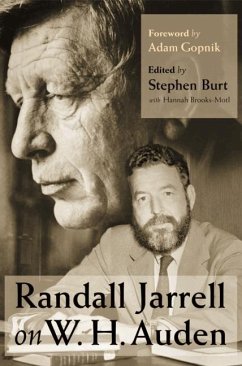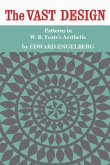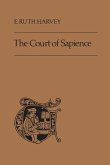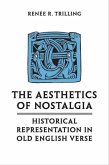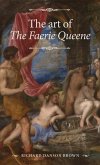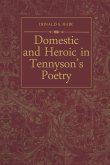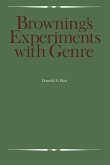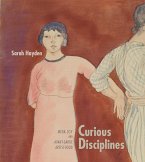Randall Jarrell was one of the most important poet-critics of the past century, and the poet who most fascinated and infuriated him was W. H. Auden. In Auden, Jarrell found a crucial poetic influence that needed to be both embraced and resisted. During the 1940s, Jarrell wrestled with Auden's work, writing a series of notorious articles on Auden that remain admired and controversial examples of devoted and contentious criticism. While Jarrell never completed his proposed book on Auden, these previously unpublished lectures revise and reprise his earlier articles and present new insights into Auden's work. Delivered at Princeton University in 1951 and 1952, Jarrell's lectures reflect a passionate appreciation of Auden's work, a witty attack from an informed opponent, and an important document of a major poet's reception.
Jarrell's lectures offer readings of many of Auden's works, including all of his long poems, and illuminate his singular use of a variety of stylistic registers and poetic genres. In the lecture based on the article ''Freud to Paul,'' Jarrell traces the ideas and ideologies that animated and, at times, overwhelmed Auden's poetry. More precisely, he considers the influence of left-liberal politics, psychoanalytic and evolutionary theory, and the idiosyncratic Christian theology that characterized Auden's poems of the 1940s.
While an admiring and sympathetic reader, Jarrell does not avoid identifying Auden's poetic failures and political excesses. He offers occasionally blistering assessments of individual poems and laments Auden's turn from a cryptic, feeling, impassioned poet to a rhetorical, self-conscious one. Stephen Burt's introduction provides a backdrop to the lectures and their reception and importance for the history of modern poetry.
Dieser Download kann aus rechtlichen Gründen nur mit Rechnungsadresse in A, B, BG, CY, CZ, D, DK, EW, E, FIN, F, GR, HR, H, IRL, I, LT, L, LR, M, NL, PL, P, R, S, SLO, SK ausgeliefert werden.

